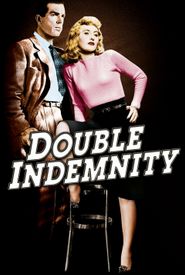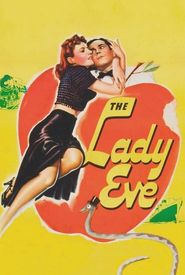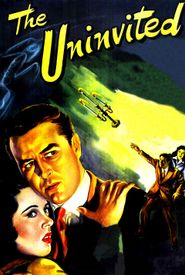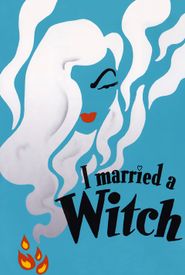George Gard "Buddy" DeSylva, a renowned American songwriter, film producer, and record executive, was born on January 27, 1895, in the bustling metropolis of New York City. However, he spent his formative years in the sun-kissed state of California, where he was influenced by the rich cultural heritage of the West Coast.
DeSylva's academic pursuits took him to the University of Southern California, where he became an active member of the esteemed Theta Xi Fraternity. His family background was marked by a rich tradition of artistic and professional achievement, with his father, Aloysius J. De Sylva, being a Portuguese-born actor who had made a name for himself in the entertainment industry.
On the maternal side, DeSylva's mother, Georgetta Miles Gard, was the daughter of George E. Gard, the respected and accomplished police chief of Los Angeles. This unique blend of creative and professional influences likely played a significant role in shaping DeSylva's future as a songwriter, film producer, and record executive.
Buddy DeSylva's early musical endeavors yielded a notable success with the Broadway production of Sinbad in 1918, which featured a range of songs, including the now-famous "I'll Say She Does". This pivotal moment in his career marked the beginning of a lasting professional relationship with the renowned entertainer Al Jolson, who not only performed DeSylva's compositions but also played a significant role in facilitating his entry into the competitive world of Tin Pan Alley songwriting in New York City, where DeSylva eventually established himself as a prominent songwriter.
Notable composer and lyricist Buddy DeSylva's professional trajectory in the early 1920s was marked by a series of collaborations with the renowned composer George Gershwin, a partnership that would yield a groundbreaking and innovative artistic endeavor.
This collaborative effort, the experimental one-act jazz opera Blue Monday, was set against the vibrant backdrop of Harlem, a cultural hub that would later serve as the inspiration for Gershwin's iconic opera Porgy and Bess, a decade hence.
Blue Monday, a pioneering work in the realm of jazz opera, would go on to earn widespread recognition as a precursor to Porgy and Bess, a testament to DeSylva's and Gershwin's trailblazing efforts in the world of American musical theater.
Marie Wallace, a radiant and talented Ziegfeld Follies dancer, captured the heart of the esteemed songwriting mastermind, Buddy DeSylva, in April of 1924. This pivotal moment marked the beginning of a lifelong partnership that would forever change the landscape of the music industry.
As a creative force to be reckoned with, DeSylva joined forces with the incomparable lyricist Lew Brown and the ingenious composer Ray Henderson in 1925, forming a triumvirate of musical genius. Together, they penned some of the most iconic and enduring songs of the era, including the enchanting "Magnolia" in 1927 and the beloved Broadway classic "Good News".
Buddy DeSylva, a pioneering figure in the music industry, took the significant step of joining the esteemed American Society of Composers, Authors, and Publishers (ASCAP) in the year 1920. His impressive career trajectory continued to unfold as he assumed a seat on the ASCAP board of directors, a prestigious position he held between the years 1922 and 1930.
Subsequently, DeSylva ventured into the realm of producing stage and screen musicals, making a notable move to the vibrant city of Hollywood. Under contract to the renowned Fox Studios, he went on to produce a diverse array of movies, including The Little Colonel, The Littlest Rebel, Captain January, Poor Little Rich Girl, and Stowaway, leaving an indelible mark on the world of cinema.
In the year nineteen hundred and forty-one, he ascended to the esteemed role of Executive Producer at Paramount Pictures, a position he would hold onto with tenacity until the year nineteen hundred and forty-four.
Notably, during his tenure as Executive Producer, he was also responsible for overseeing the production of numerous notable films, including the cinematic masterpiece "Double Indemnity", the critically acclaimed "For Whom the Bell Tolls", the biographical drama "The Story of Dr. Wassell", and the crime thriller "The Glass Key".
Buddy DeSylva's entrepreneurial spirit knew no bounds, as he not only excelled as a renowned songwriter, but also ventured into the realm of executive production, discreetly lending his expertise to various film projects without seeking to draw attention to himself. Furthermore, in 1942, he joined forces with two other visionary music industry professionals, Johnny Mercer and Glenn Wallichs, to establish Capitol Records, a legendary label that has proudly endured for generations, steadfastly preserving its commitment to quality and innovation. Moreover, DeSylva's far-reaching ambitions led him to found the Cowboy label, a testament to his unwavering dedication to nurturing new talent and fostering a rich cultural heritage.
Buddy DeSylva was a trailblazing American composer, songwriter, and music producer, whose remarkable career spanned over four decades, leaving an indelible mark on the world of popular music.
Born on May 1, 1895, in New York City, DeSylva's early life was marked by a passion for music, which he honed through his studies at Columbia University and later at the Juilliard School.
As a young man, DeSylva began his professional career as a songwriter, penning hits for various artists, including Al Jolson, Eddie Cantor, and the Marx Brothers.
In the 1920s, DeSylva co-founded the legendary music publishing company, DeSylva, Brown, and Henderson, which became a major force in the music industry, producing countless hits and launching the careers of numerous stars.
Throughout his illustrious career, DeSylva worked with some of the most prominent names in music, including George Gershwin, Jerome Kern, and Cole Porter, and was instrumental in shaping the sound of American popular music.
DeSylva's impressive list of credits includes some of the most iconic songs of the 20th century, such as "My Blue Heaven," "The Varsity Drag," and "Singin' in the Rain," which he co-wrote with Arthur Freed and Nacio Herb Brown.
Awards and accolades poured in for DeSylva throughout his life, including multiple Academy Award nominations, a Grammy Lifetime Achievement Award, and inductions into the Songwriters Hall of Fame and the American Songwriters Hall of Fame.
Buddy DeSylva's remarkable legacy continues to inspire and influence new generations of musicians, songwriters, and producers, cementing his place as one of the most important figures in American popular music.


























